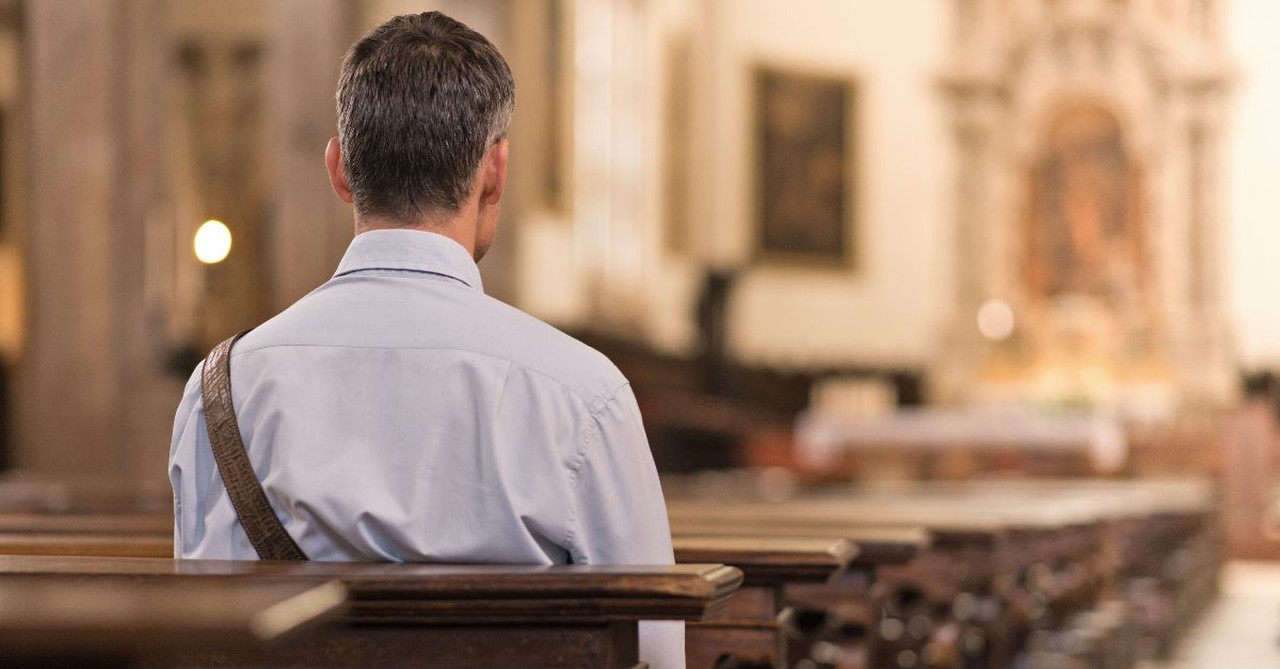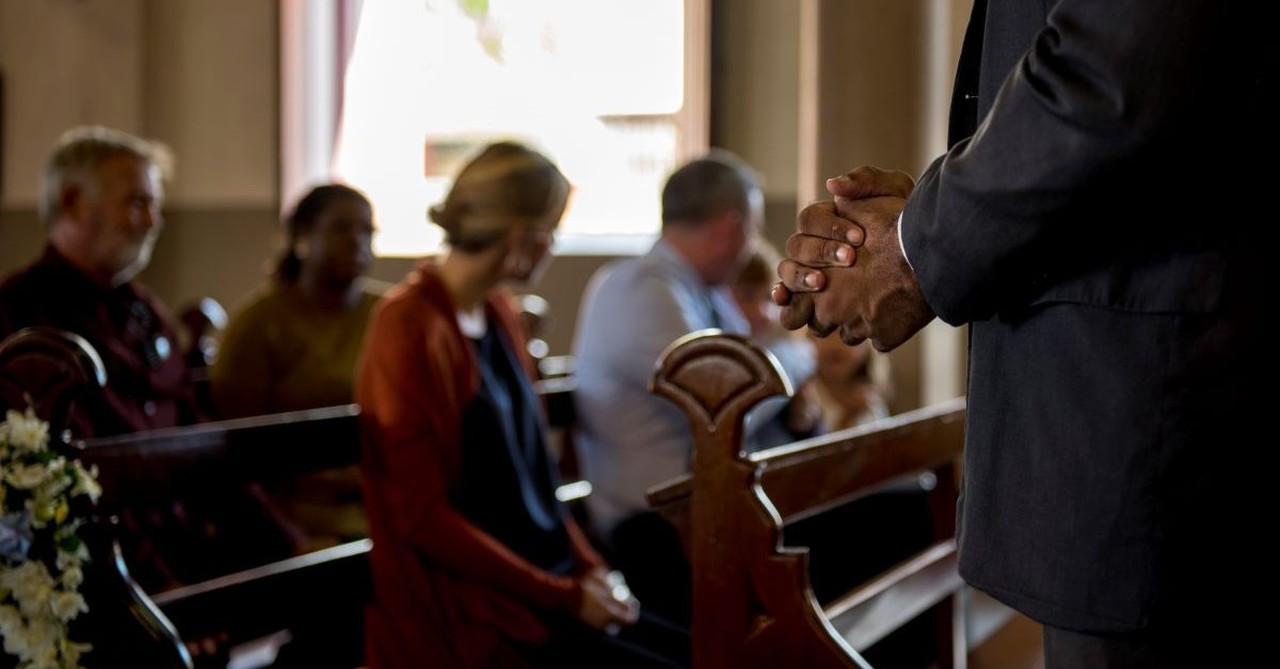Should Former Pastors Still Attend Their Last Church?

“Where does your pastor live?”
That’s not a question that would have been asked in a small town some twenty-five years ago. Even if you didn’t attend church, you likely knew where the pastor lived. The pastor and family lived right next to the church in the parsonage. But there are fewer parsonages these days.
Forty years ago, the average stay for a pastor was about 3-5 years. Now, some estimate that it is up to 6-8 years. If you’re only going to be in a community for a couple of years, a parsonage might be a great idea. But what if you plan on planting deep roots in that community? You wouldn’t want to be a 70-year-old pastor needing to retire, but doing so would mean not only losing your income at the church but also losing your housing. Because of these shifts, among others, more pastors are staying in their community even after retiring.
This has led to another question. “Where does your pastor go to church now?”
Of course, when we ask that question, we don’t mean the new guy that is at the church and standing behind the old pastor’s pulpit now. We mean the pastor. The one who has been in the community for many years now. Once the pastor retires what church should they go to? Is staying in the old church possible?
It depends. There are a few things you must consider as you make this decision.
1. You Need to Know Yourself and Your New Role

1. You Need to Know Yourself and Your New Role
SLIDE 1 OF 5
Let’s consider a scenario. Imagine yourself in this church as “just a member.” The new pastor, a young buck, has made a very unpopular decision. Many of your biggest friends and supporters are opposed to this new initiative. And if you’re being honest, you aren’t too fond of the plan either. Some of your old friends call you up to discuss this situation. What do you do?
It’s time to be honest with yourself. Are you the type of person who loves to be the one calling the shots? Do you need this affirmation from church members? Does it make you feel good that people still want to support your vision instead of that of the new pastor? Are you feeling affirmed because many of the people still consider you the pastor?
Your new role is to build a bridge. You are to be the biggest supporter and cheerleader for the new pastor. No, that doesn’t mean agreeing with everything that is done, nor shouting an “amen” at every sermon. You still need to be authentic. But your default position has to be that of supportive. If you are not able to defer to the new pastor, you need to leave. Are you able to be pastored instead of being the one pastoring? If not, you’ll be harmful instead of helpful.
On occasion, a pastor will stay in the community (remember that there is likely a mortgage to pay now), but decide to no longer attend the former church. Much of what is said above still applies, especially when it comes to hospital visits and funerals. If you are going to stay in the community but no longer be the pastor at that local church, you cannot continue to do pastoral functions. Yes, there will be beloved members who want you to do a funeral, to do a hospital visit, or even a wedding. But if you want that next pastor to succeed, you must do so with their permission and blessing. You need to do what you can to help your parishioners see the new pastor as their pastor.
Photo Credit: ©iStock/Getty Images Plus/cyano66
2. You Need to Know the Pastor You Are Replacing

2. You Need to Know the Pastor You Are Replacing
SLIDE 2 OF 5
Jim was a very charismatic pastor. Under his tenure at the church, it grew from 125 on Sunday morning to 350. But Jim is older and needs to retire. He’s charismatic but doesn’t have an inflated ego. In other words, he’d pass some of those questions in the first point. He’d make a great mentor for the new pastor, Eric.
The only problem is that Eric isn’t mature enough to recognize this. He’s a good young preacher but he doesn’t have enough confidence to see Jim as anything but a threat to his ministry. Jim likely cannot stay.
If you are a retired pastor thinking about staying in the church, you need to get to know the new pastor well. Can I suggest, though, that you do this from a distance for a season? If you are thinking of staying it is absolutely vital that you take an extended break from the church. The new pastor has to develop an identity as their shepherd. That cannot happen if you are still present—at least initially. Why not get to know the pastor behind the scenes for a year or more? Develop a good relationship so that if you do decide to “come back,” it will be in the context of a strong relationship.
Photo Credit: ©GettyImages/fizkes
3. You Need to Know the Congregation

3. You Need to Know the Congregation
SLIDE 3 OF 5
Some churches are still being “pastored” by the person who left twenty to thirty years ago. Pastors can develop deep bonds with their people, especially if they were pastoring during a time when profound experiences with God took place. But as Ecclesiastes 3 teaches us, there is a time and a season for everything. God wants us to live in the present and not the past (or even the future). We can only be obedient in the moment.
If you’re the retiring pastor, you likely know the congregation better than anyone. You ought to know if they’ll be able to handle you being still “in the building.” Will they always defer to you? By your presence, are you keeping them from “moving on” into the new season that God has for them? Will they allow you to move on to this new season? A new pastor might be the one receiving the paycheck now, but in their mind, you are still the pastor. If that is the case, you need to move on and you need to help the church move on.
If you know each of these three things perhaps you would be able to stay. More times than not, you probably need to leave. It’s rare to find a combination where the retiring pastor is selfless enough to transfer power, the new pastor is mature enough to accept this blessing, and the congregation is healthy enough to house a current and former pastor. But it is possible. And if it does come together, it can be a massive blessing for the congregation and for both pastors.
Photo Credit: ©GettyImages/Rawpixel
How Can We Love Our Retired Pastors?

How Can We Love Our Retired Pastors?
SLIDE 4 OF 5
Much of this article has been on showing honor and love to the new pastor. This is vital. We do not want to hinder a present ministry because of a past attachment. But I am also uncomfortable with the way churches (and pastors) tend to sever all ties. Some pastors who have given their lives to seeing churches be healthy and follow Jesus are kicked to the curb when they are no longer “useful.” We need to grow in following Jesus in how we care for retired pastors.
First, we must consider the economics. Is the pastor stuck in the community because of buying a home in a season of low interest and now cannot afford to move? We should be sensitive to this. Were they in a parsonage and now have essentially nothing by way of equity? How can we love our retired pastors? Depending on your church tradition, there are various organizations that can assist in helping retired pastors with dignity and care.
Secondly, we must consider the relational dynamics of this. If you’re the new pastor, do not expect the retired pastor to cut all ties with congregants. Pastors are not machines. We are not merely a hired hand. That means authentic and meaningful relationships are built along the way. If the retired pastor has committed to being the biggest supporter the current pastor has, these deep relationships with the former pastor are assets. We shouldn’t expect a retired pastor to relationally “start over.”
Lastly, we must consider the spiritual/ministry dynamics of this. Just because the pastor is no longer in vocational ministry, it does not mean that their time of doing ministry is over. We always have a God-given purpose to be lived out. Retired pastors have much to offer. Even if in another location, we should be sensitive to this and help them continue to strengthen their relationship with the Lord and to engage in whatever ministry God has called them to. The new pastor has a ministry, as does the former pastor.
Photo Credit: ©GettyImages/DGLimages
A Word to the New Pastor, If the Former Pastor Won’t Go

A Word to the New Pastor, If the Former Pastor Won’t Go
SLIDE 5 OF 5
You’re in a tough spot. The worst thing you can do is openly criticize the former pastor. Learn to celebrate what the congregation is celebrating about them. Make yourself an ally. But also realize that you cannot force people to view you as their pastor. It’s possible that you will never be the pastor of some people within your church. Accept that. Love them as best as you can.
Also, consider having a tough conversation with the former pastor. Hopefully, they will have enough respect and honor for you and the ministry to step aside. See if there are any unseen circumstances that are causing them to have to stick around. Love them well. Build as good of a relationship as you can with the former pastor.
Lastly, 1 Peter tells us to shepherd the flock of God that is among you. This might mean that for a season, the “among you” is narrower than your membership rolls. Focus your attention on those whom the Lord has given you, and be patient as you look for opportunities to shepherd the sheep that still consider the former pastor to be their shepherd. At the end of the day, remember that this is God’s church, and you, and the former pastor, are but under-shepherds. Minister accordingly, and leave your ego at the door.
Photo Credit: ©GettyImages/kupicoo
Originally published August 26, 2025.









